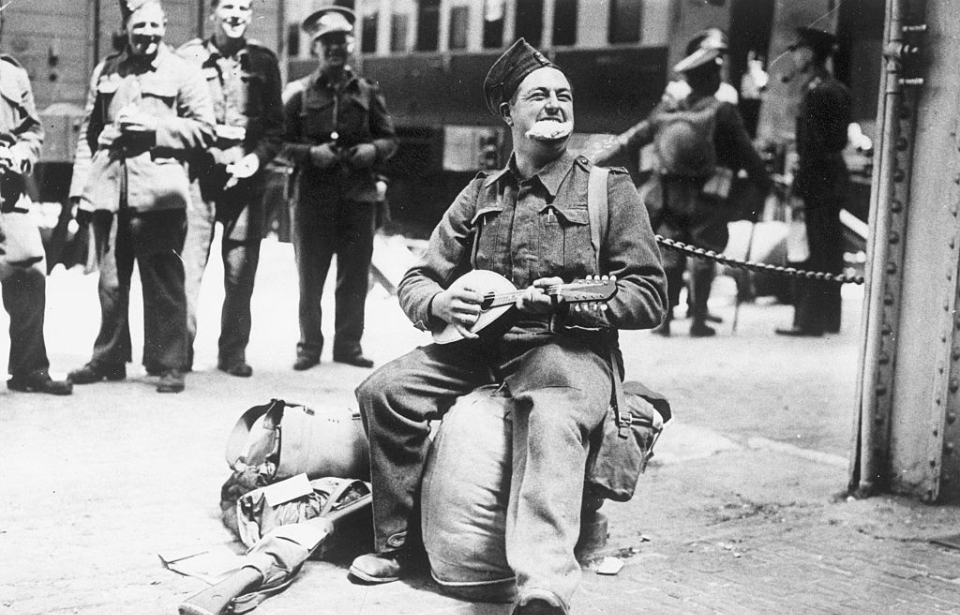In the spring of 1940, the world witnessed a harrowing episode of human resilience and bravery on the shores of Dunkirk. As the Germans closed in, British and Allied soldiers found themselves surrounded, and the evacuation that followed – famously known as the “Miracle of Dunkirk” – was the largest seaborne rescue operation in history, with over 338,000 men evacuated.
It was in late May that the first vessels of Operation Dynamo, known as the “little ships,” arrived in the United Kingdom, carrying weary and battle-worn soldiers. Their faces may have been etched with exhaustion, but their hearts were filled with both hope and gratitude.
The scenes that unfolded along the English coastline were poignant and powerful, as families eagerly awaited the return of their loved ones, uncertain if they’d ever see them again. This can be seen in the above photo of Cecil Collins, one of the British soldiers present at Dunkirk. The image, presumably captured back in the UK, shows him enthusiastically playing his banjo while he scarfs down a Cornish pasty, awaiting orders.
As the soldiers disembarked from the boats, they were greeted with resounding cheers and applause from the crowds gathered to welcome them home. It was a bittersweet moment; while the majority were jubilant to be back on English soil, they couldn’t help but remember the fallen.
The solidarity and camaraderie forged on the beaches of Dunkirk remained forever etched in their memories. The evacuation not only saved lives, but served as a rallying cry for the entire nation; it galvanized the British spirit, uniting people from all walks of life. The bravery of those who participated in the rescue effort was a real-life example of the strength that could – and would – be found in collective determination.
The British soldiers returning from Dunkirk were celebrated as heroes, yet many remained humble, with many saying they were simply doing their duty. Their experiences in France forever changed them, and their resilience inspired a nation that was facing what would be a long and challenging war.
More from us: The Japanese Defeat During the Guadalcanal Campaign Was a Turning Point for the Allies
This “Dunkirk spirit” became a symbol of British resolve during the darkest days of World War II. It was a spirit that refused to be defeated, that held firm in the face of adversity and that brought out the best in humanity when it was needed most.
